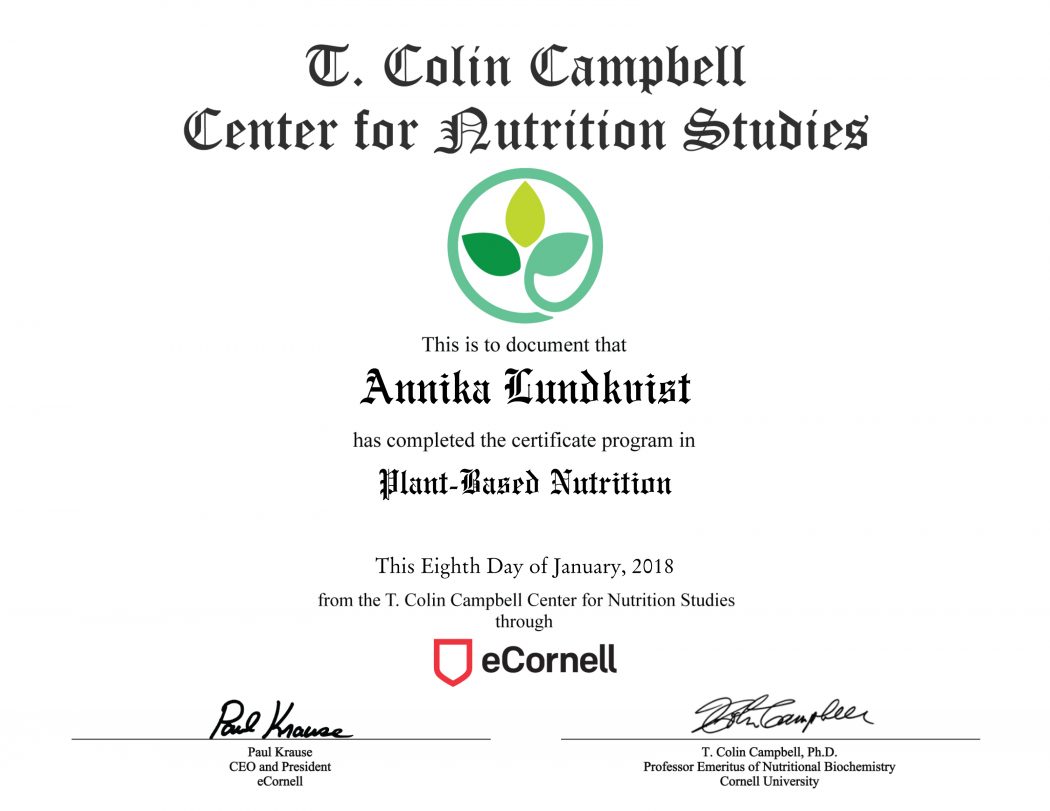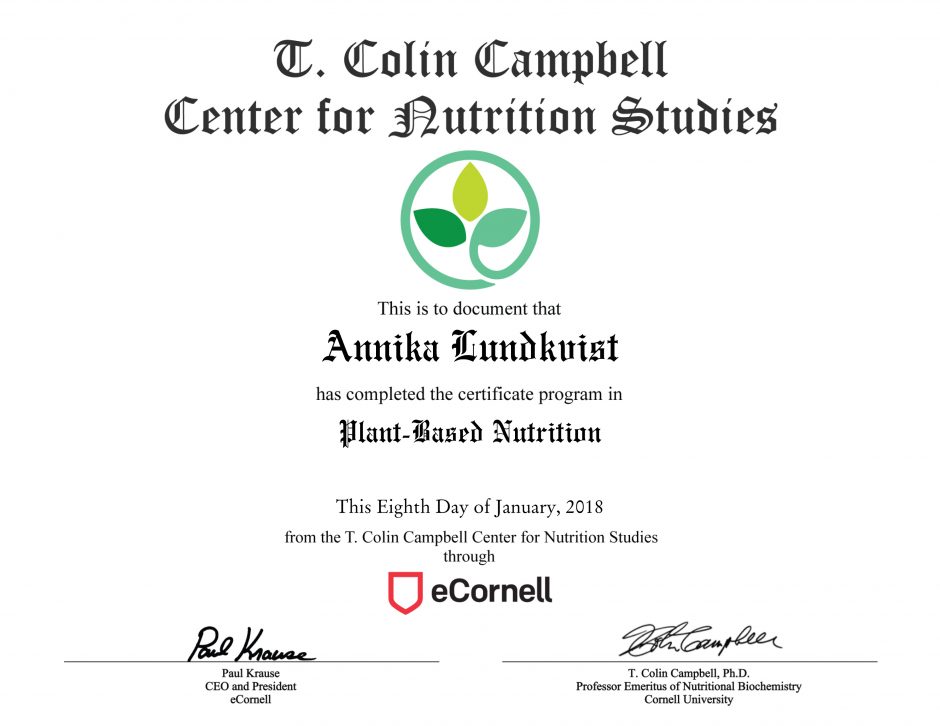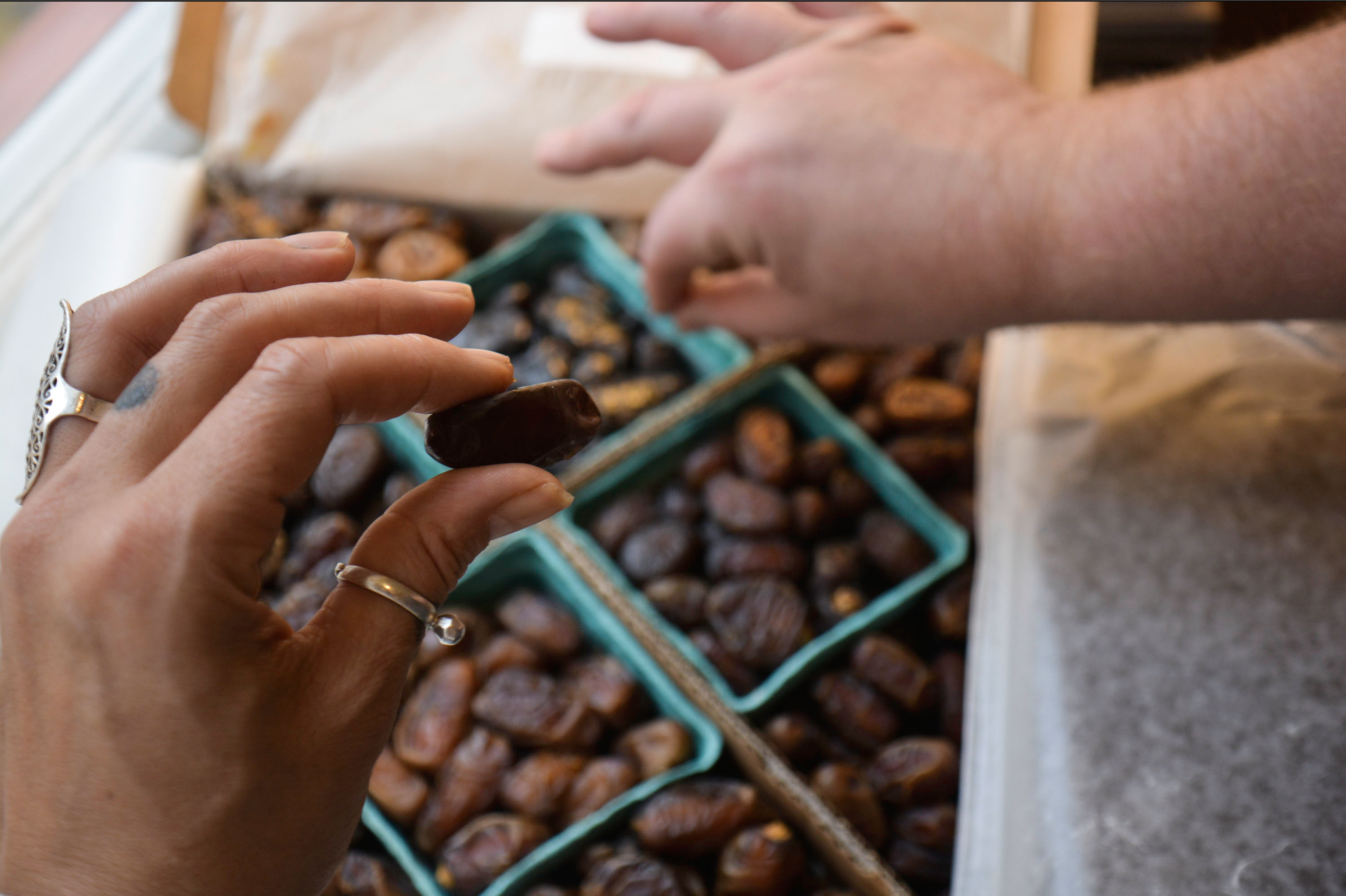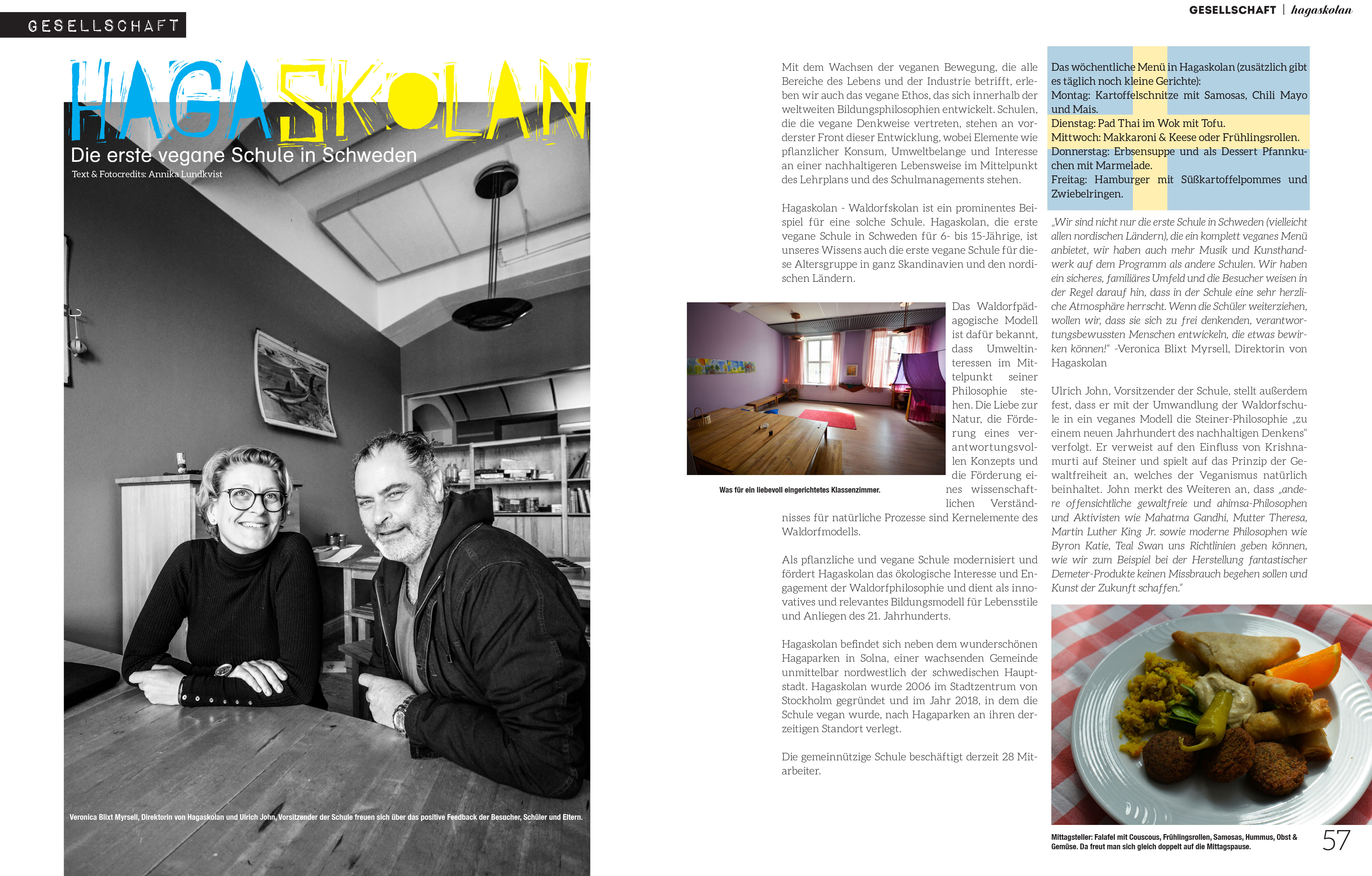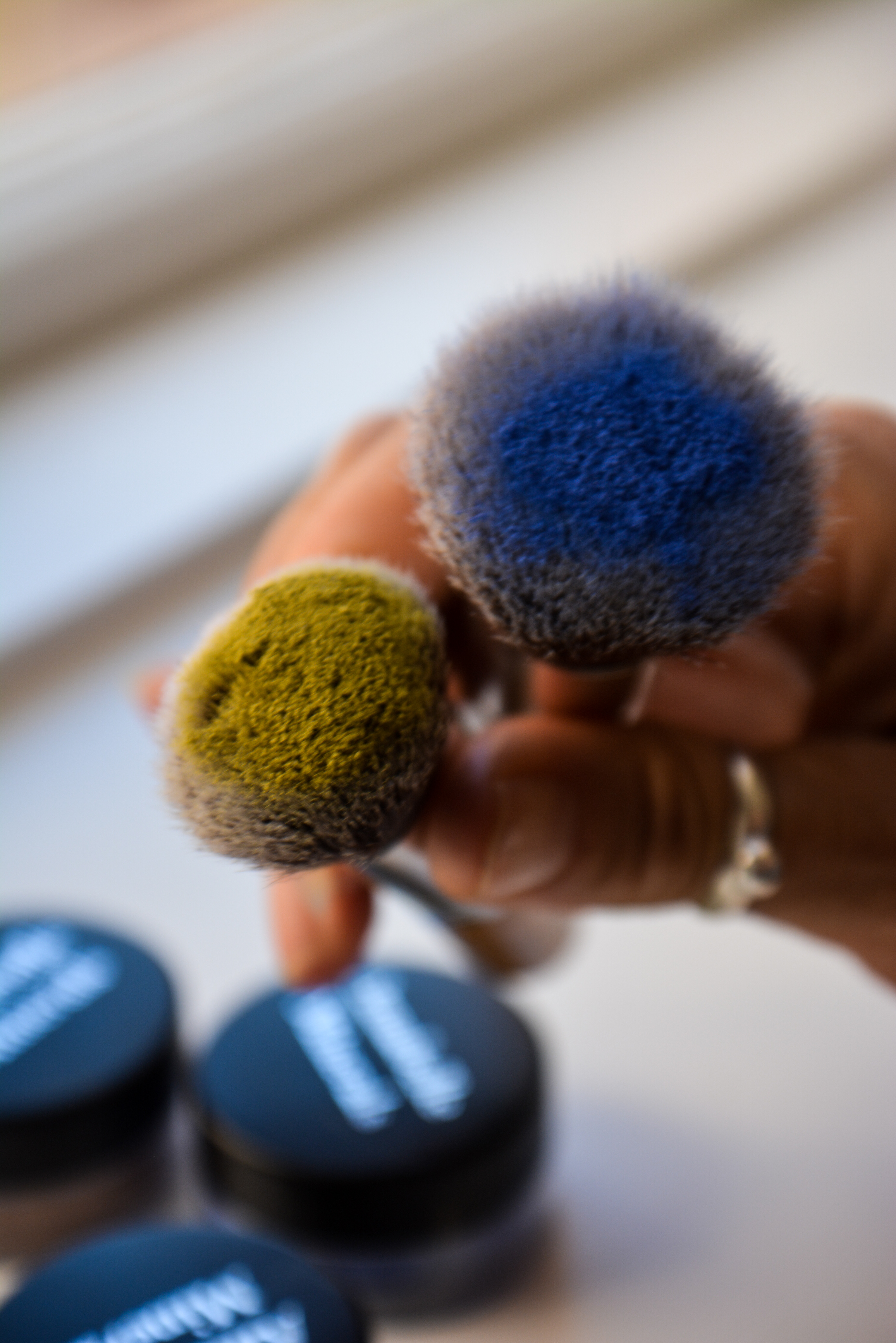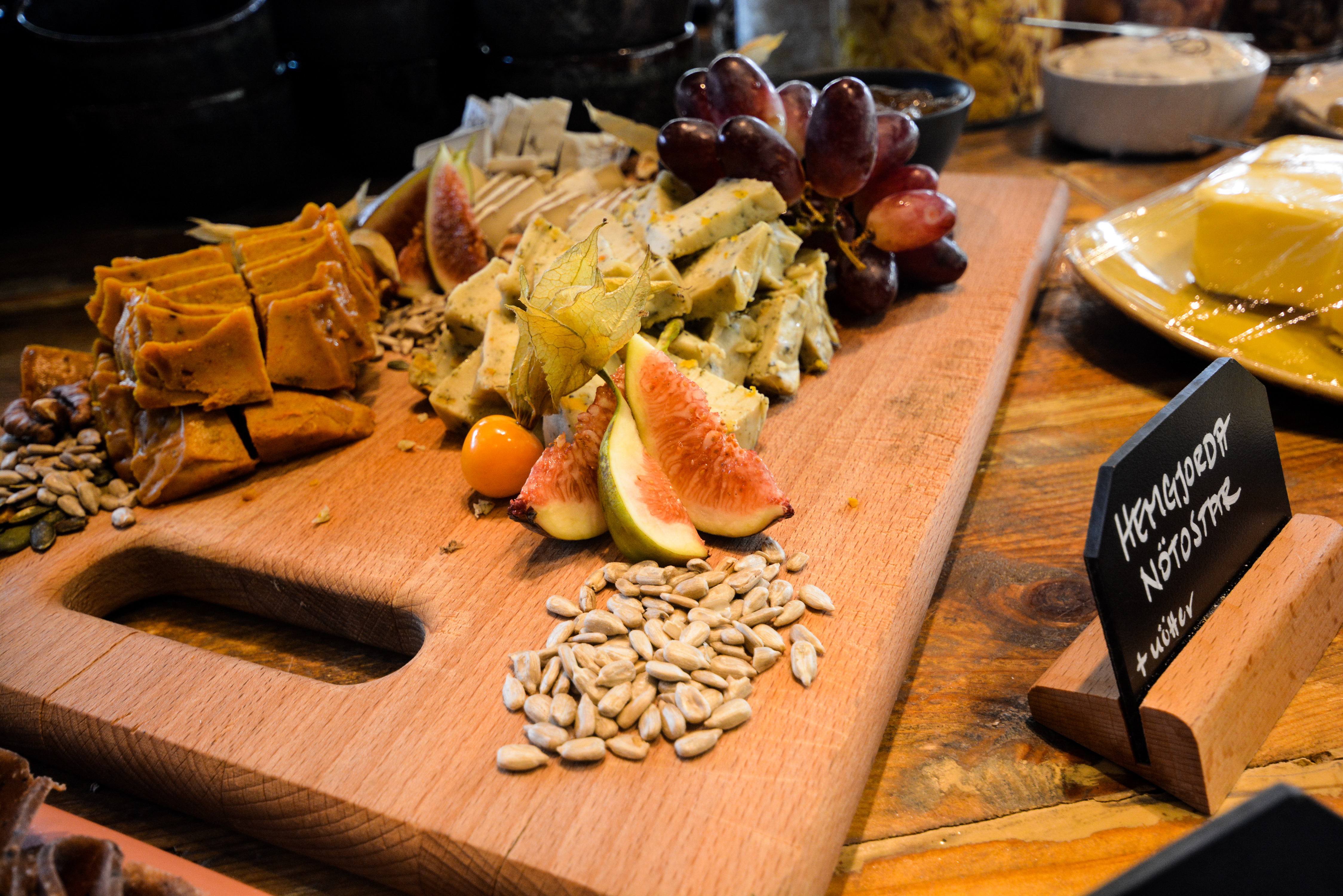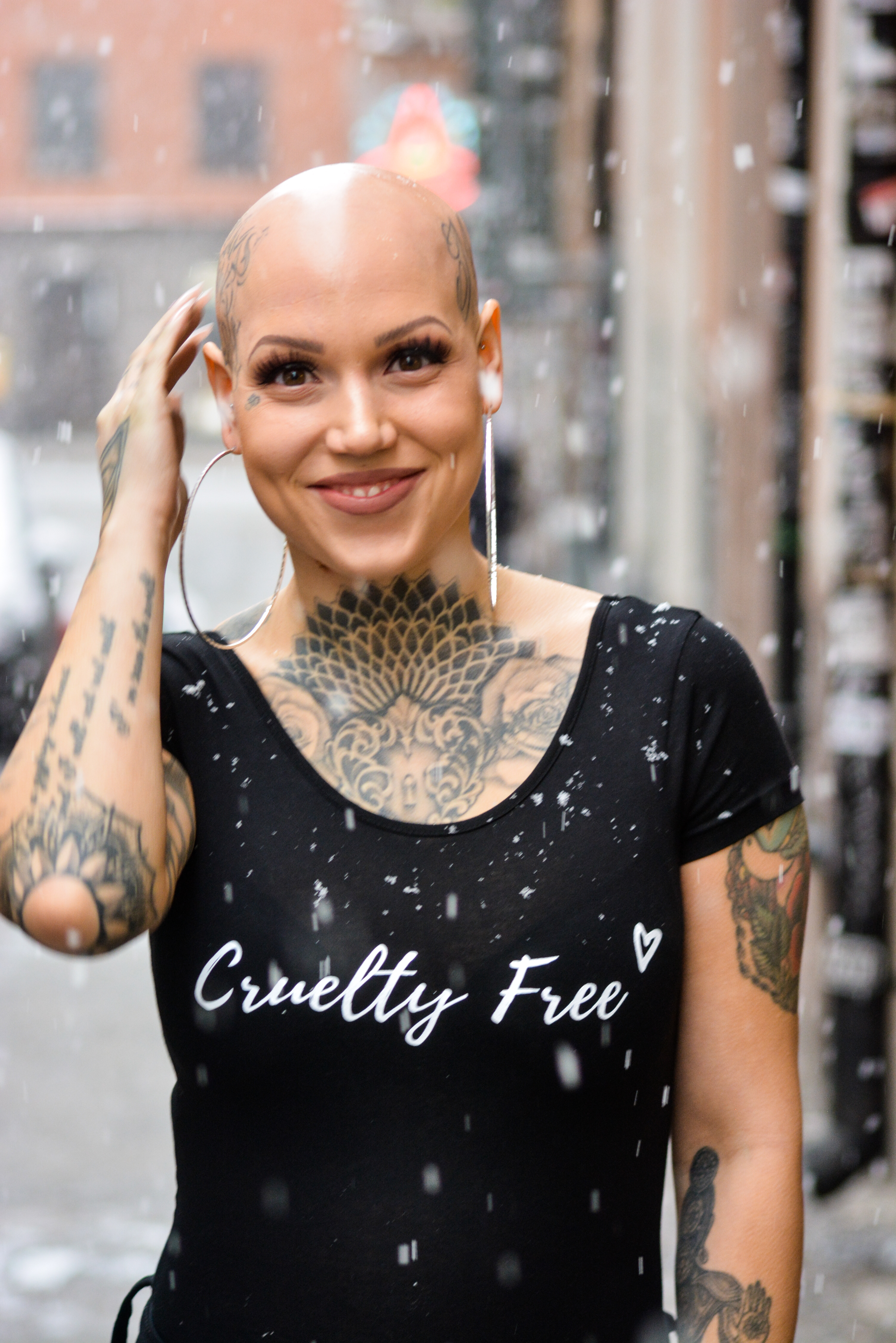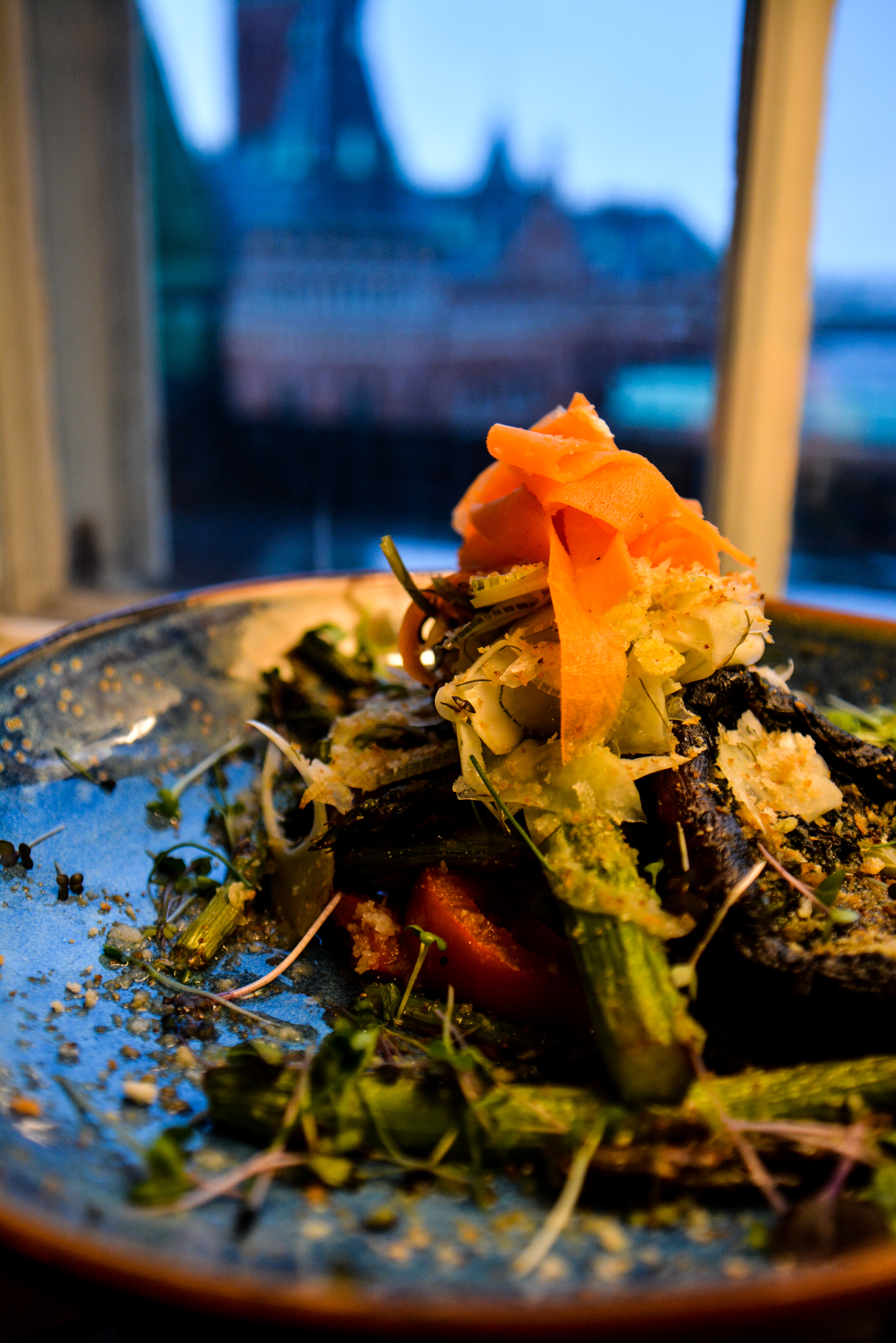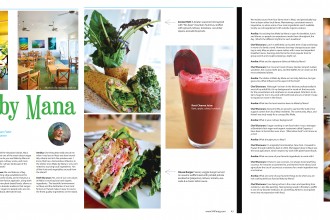Read my post My Experience Taking the Plant-Based Nutrition Certificate Program at the
T. Colin Campbell Center for Nutrition Studies website here
DISCLAIMER: I am not a nutritionist & do not offer formal nutrition advice. I share my story here of my experience with this certificate course as it has been part of my own individual path to improve broader knowledge as an advocate of veganism & plant-based diets.
Last month I completed the Plant-Based Nutrition Certificate course offered by the T. Colin Campbell Center for Nutrition Studies. I have always enjoyed food but when I became vegan back in 2014 my interest in food issues, ingredients & nutrition began to gradually gain even more depth. My professional & creative work was greatly affected too as I began to turn my camera lens more & more to the culinary world & focus more on photographing food. Much of my published work to date focuses on vegan food & stories surrounding people committed to a vegan lifestyle & advocacy.
I took the unique & renowned program offered by the T. Colin Campbell Center for Nutrition Studies primarily to learn more about WFPB (Whole Foods Plant Based) diet for myself. I also have been eager to expand the nature of my advocacy beyond (but still inclusive of) ethical veganism to a more plant based approach for societal & environmental health reasons as well.
* * *
Experience & Testimony in the Plant Based Nutrition Certificate Program
offered by the T. Colin Campbell Center for Nutrition Studies & eCornell
Taking part in this Certificate Program was a definite turning & landmark point in my whole foods plant-based journey. When I became vegan, I was aware of the distinction between consuming vegan food & being on a whole foods plant-based diet, but as someone who made the change for ethical reasons related to animal welfare, my primary commitment was really focused on elimination of meat, dairy, eggs & other products relying on use of animals for production. My way of eating naturally incorporated many whole foods plant-based dishes but I also continued to consume heavily processed & refined foods.
When my family & I moved to Sweden in early 2017, it was a critical transition in which we sold or donated a huge portion of our household goods plus two cars, moving on savings & a plan to just establish ourselves here & start another chapter of life. For our first several months we were grocery shopping on a much more restricted budget than we had ever been used to. I quickly realized that I could do without a number of “specialty” (often pricey) vegan products I had grown so accustomed to. I also realized I could do without a lot of items that I generally didn’t eat for nutrition but rather for pleasure. It was down to the basics & it was also a real experience in my palate also changing. Our meals quickly became very rich with grains, legumes, fresh veggies & fruits. Here in Sweden, oat milk is the main plant based milk available (other types are available but this is the most common) & that became a staple in our fridge as well My husband is not vegan but over the recent years has become very savvy at veganizing dishes we can enjoy together & I have also observed my food choices impact some of his choices over time (such as a massive reduction of animal dairy in his diet).
This shift has been important to me because it has connected budget to meal prep which is critical as a fairly common misconception is that eating vegan or being plant based is prohibitively expensive. I will always enjoy fine dining when I can & it’s fascinating to see what is developing in the realm of gourmet plant based & vegan cuisine but it’s important to be able to share with people that this way of eating is not about being trendy or posh & that in fact it is one of the most practical routes to take when eating on a budget.
A significant part of my initiative to take the course offered by the T Colin Campbell Center for Nutrition Studies was to begin working on my awareness of health & nutrition aspects related to whole foods plant-based eating. My initial pull to veganism was rooted in animal rights issues & while I had become fairly well versed in issues related to animal cruelty & abuse in the food industry & had an ever expanding knowledge of what vegan eating entailed, I was short on knowledge & awareness related to real healthful plant based eating & nutrition. I’ve considered myself an advocate since my early days of transitioning to veganism as I quickly felt compelled to use my voice for these issues & I knew that learning more about Plant Based Nutrition would help guide me in being more healthy & sharing that knowledge as well. As someone who has wanted to begin integrating the aspect of health into my advocacy, the Plant Based Nutrition Certificate program was indispensable.
I have fielded questions regularly from people over the past few years who, for various reasons, are changing their way of eating. People who want to eat less meat; people who are curious about vegan eating but have a difficult time conceptualizing dishes without meat & dairy as they are so used to cooking with those; people who are moving towards plant based for health reasons but also are unfamiliar with how to cook or even grocery shop for that type of diet; people who develop allergies during pregnancy or breastfeeding or whose children have allergies (e.g. dairy) so they are learning to make meals without many of the (non-vegan) ingredients they used before.
My advocacy has expanded to wanting to provide straightforward, accessible tips for people like this. I want to be able to provide not only delicious cooking tips but also compelling reasons for people to be interested in Whole Foods Plant-Based diets. My background as a vegan has helped me get to this point but connecting the dots to a Whole Foods Plant-Based diet is definitely next level for me & I am excited to continue with my advocacy & to continue to be part of the movement of creating more awareness with this knowledge through my cooking, own form of kitchen activism as well as through the photography & written work I do.
From the types of questions I have been receiving, I know people unfamiliar with plant based eating are craving information on how to make a shift or incorporate more of that in their life but can be nervous to ask or make changes. I also craved moving forward with a base of sound nutritional understanding of the diet I myself consume. The Plant Based Nutrition Certificate program was both a great foundation & jump off point for me in this regard.
As an advocate who is extremely interested in food, I also require myself to examine & reflect on my own approach as an advocate. Real talk: not everyone is interested in animal welfare. Not everyone cares about veganism & in fact many people are put off by the “v” word as soon as you bring it up. In fact, I was one such person myself for decades (even though if you asked me over those years of course I would have said I cared about animals). I know activists & individuals whose lives are devoted to working to change & stop the senseless cruelty against animals that pervades food & other industries. I have great respect for them. I have tremendous respect for anyone who devotes their energies to the welfare & safety of fellow species. However, I realized that in my own brand of advocacy I absolutely had to reach into others areas of knowledge, not just for the outreach I seek to provide but for my own lifestyle as well.
Aspects such as dairy’s negative affect on human health & contribution to disease were one of many issues taught & explored in the Plant Based Nutrition program that were largely new to me in terms of knowledge. I had previously learned a bit about casein, its relationship to the development of cancer & it’s very addictive properties , but the course provided a sound & in depth overview of the negative health impacts of dairy consumption, particularly (along with meat) in the Standard American diet.
Becoming more focused on a Whole Foods Plant-Based diet through this course provided me with knowledge & critical skills to understand where the ways of eating that many view as “traditional” in our societies are not only greatly harming us but also ecosystems & the planetary environment. I also am now increasingly able to see where vegan diets are their most unhealthy & equipped to share that knowledge with people who are interested in cooking with less meat & dairy, being able to warn of the pitfalls of just focusing on the “vegan label” & to be able to incorporate a more whole foods approach.
My interest in ingredients, sources of food, food industry, nutrition, health & cooking has only intensified in recent years. Going vegan & plant-based can be a major change for many people with obstacles that simply prevent them from actually committing- non-supportive friends or family members, difficulty learning how to shop for a whole new range of ingredients they are unfamiliar with or simply difficulty getting past old consumption habits. I’ve always felt that the social challenges of making this change & the obstacles people experience in terms of confronting lifelong habits were among the most difficult hurdles in transitioning. I’m very excited to gradually add a new & very rich layer of nutrition & health knowledge into my lifestyle & advocacy & promote Whole Foods Plant-Based nutrition to support people who are confronting various challenges in their transition.
***I’m a photographer & writer & shortly after becoming vegan I knew I had to commit my crafts to issues related to veganism as well- particularly the food. Within a few months I had become a columnist for Vegan Health & Fitness magazine. I enjoyed contributing a range of content to this publication- restaurant profiles, animal sanctuary coverage & interviews with vegan parents. Over the past few years I contributed to a number of other publications & had a 12 part series with Vegan Italy magazine in which I interviewed vegan mothers around the globe on their journey & transition as vegans, their often plant based approach experience with vegan pregnancy & nutrition as well as interacting with doctors & schools regarding their family’s choice. I’ve enjoyed covering vegan restaurants & cafes in multiple cities as well as exploring & covering vegan menu options at historically non-vegan establishments. I continue to focus on issues of veganism in my photography & written work & my interest to continue photographing aspects of the vegan & plant based culinary world only grows, as does my enjoyment of cooking & food photography at home. For more about my work & relationship to veganism visit this post-
FOOD: Choice, Change, Photography

